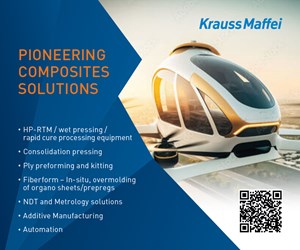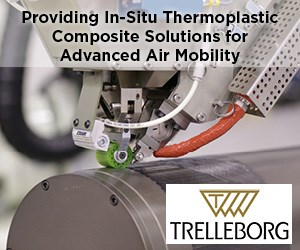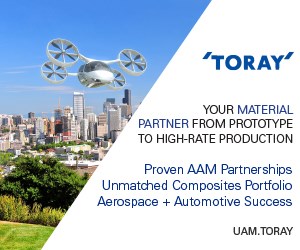GE Aerospace, Beta partner on hybrid-electric flight advancement
The companies will co‑develop a hybrid‑electric turbogenerator for use in AAM systems, leveraging GE’s engine tech and Beta’s electric propulsion capabilities.
Share
GE Aerospace (Cincinnati, Ohio, U.S.) and Beta Technologies (South Burlington, Vt., U.S.) have signed a strategic partnership and equity investment agreement, subject to regulatory approval, to accelerate the development of hybrid-electric aviation by combining Beta’s rapid innovation approach with GE Aerospace’s global scale and experience.
Under the new agreement, GE Aerospace and Beta plan to develop a hybrid-electric turbogenerator for advanced air mobility (AAM) applications, including long-range vertical takeoff and landing (VTOL) aircraft, future Beta aircraft and other potential applications. The collaboration brings Beta’s expertise in high-performance, permanent magnet electric generators together with GE Aerospace’s tested turbine, certification and safety expertise for large-scale manufacturing and electrical power systems expertise.
This hybrid solution will tap into existing infrastructure and capabilities, such as GE Aerospace’s CT7 and T700 engines, and is expected to bring significant enhancements in range, payload and speed performance compared to other aircraft in the same segment.
Additionally, GE Aerospace will make an equity investment of $300 million in Beta, subject to regulatory approval, aligned with its commitment to work with key industry players to advance technologies that will support the future of flight. In connection with this partnership, GE Aerospace will also have the right to designate a director to join Beta’s board.
GE Aerospace is advancing a suite of technologies for the future of flight, including integrated hybrid-electric propulsion systems and advanced engine architectures. Multiple milestones have been achieved over the last decade, including a 2016 ground test of an electric motor-driven propeller. In 2022, GE Aerospace completed the first test of a megawatt-class and multi-kilovolt hybrid-electric propulsion system in altitude conditions up to 45,000 feet that simulate single-aisle commercial flight.
Beta itself has built up electric flight distance and hours flown, generating valuable, real-world data. Beta’s aircraft are engineered for all-weather performance and have been tested to operate reliably in a wide range of environmental conditions across the U.S. and Europe.
Related Content
-
Joby flies two eVTOL aircraft simultaneously in testing milestone
The latest in the company’s flight testing program targets certification testing acceleration and support of its passenger-carrying goals by 2026.
-
Archer Aviation signs eVTOL aircraft purchase with Japan
Japan Airlines’ and Sumitomo’s joint venture company intends to purchase up to 100 Midnight aircraft to certify and commercialize AAM services across Japan.
-
PAL-V, NLR complete composite rotors for Liberty flying car
Rotor blade design spans nearly 11 meters in length for flight, with a mid-hinge to fold and accommodate 4-meter vehicle length while driving.








